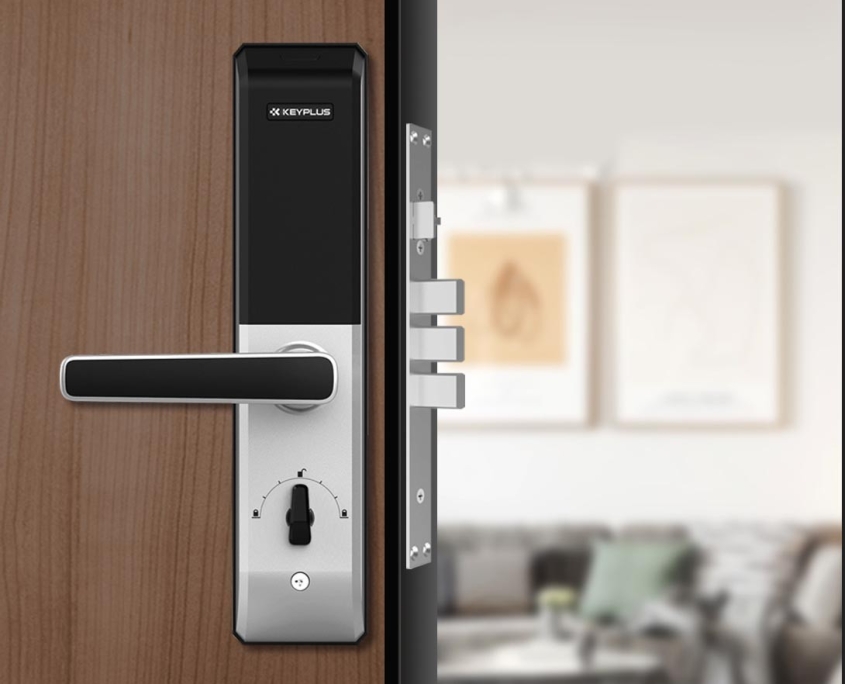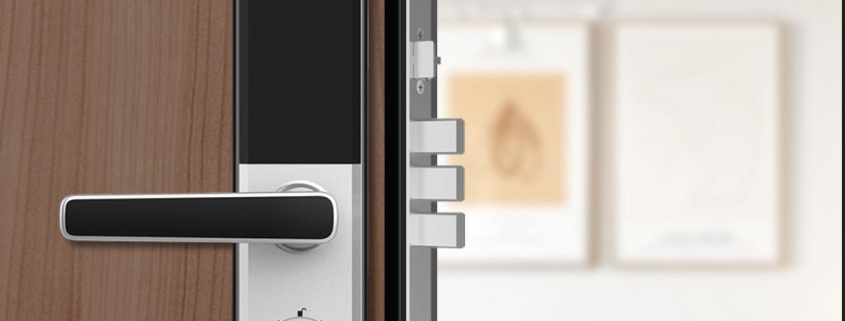What Is the Purpose of an RFID Door Lock System?
If you’ve ever used a key card to enter a hotel room or tapped a badge to access your office, you’ve interacted with an RFID door lock system. But what exactly is the purpose of this technology, and why are so many businesses—and even homeowners—switching to RFID locks?
In this guide, we’ll break down:
-
What RFID door lock systems are and how they work
-
The key benefits for security, convenience, and access control
-
Where RFID locks are most commonly used (hotels, offices, homes)
-
How they compare to traditional keys and smart locks
By the end, you’ll understand why RFID locks are becoming the go-to security solution—and whether they’re right for your property.
1. What Is an RFID Door Lock System?
An RFID (Radio-Frequency Identification) door lock is an electronic locking system that uses radio waves to communicate with a key card, fob, or smartphone. Instead of inserting a physical key, you simply hold the RFID credential near the reader, and the door unlocks.
How It Works (Simple Breakdown)
-
A credential (card/fob/phone) has a tiny RFID chip that stores a unique encrypted code.
-
The door reader emits a low-power radio signal to scan nearby credentials.
-
If the code matches an authorized user, the lock disengages.
-
If the code is invalid or expired, access is denied.
Unlike traditional keys, RFID locks don’t require physical contact—just proximity (usually within 1-3 inches).
2. The 5 Key Purposes of RFID Door Lock Systems
Why are businesses and homeowners adopting RFID locks? Here are the five main purposes driving this shift:
1. Enhanced Security (No More Lost or Copied Keys)
-
Problem with traditional keys: They can be duplicated, stolen, or lost, creating security risks.
-
RFID solution:
-
Each card/fob has a unique encrypted code that’s hard to copy.
-
Lost cards can be instantly deactivated in the system.
-
No physical keyholes mean no lock picking or bumping.
-
2. Convenient Keyless Entry (No More Fumbling for Keys)
-
Problem: Carrying multiple keys is annoying—especially for hotels, offices, and rental properties.
-
RFID solution:
-
Employees/guests just tap and go—no insertion or swiping needed.
-
Some systems allow smartphone access (via NFC or Bluetooth).
-
Great for hands-free entry (useful for delivery workers or people with disabilities).
-
3. Controlled Access & Permission Management
-
Problem: Traditional keys give unrestricted access—once someone has a key, they can enter anytime.
-
RFID solution:
-
Temporary access (e.g., for contractors, Airbnb guests, or cleaning staff).
-
Time-based restrictions (e.g., employees can only enter during work hours).
-
Audit trails (track who enters and when).
-
4. Scalability for Large Buildings
-
Problem: Rekeying locks in big offices or apartment buildings is expensive and time-consuming.
-
RFID solution:
-
Add/remove users digitally—no need to change physical locks.
-
Master key systems allow different access levels (e.g., managers vs. employees).
-
5. Integration with Smart Building Systems
-
Problem: Traditional locks don’t connect with modern security systems.
-
RFID solution:
-
Works with alarms, cameras, and automation (e.g., unlock doors during a fire alarm).
-
Mobile app controls (remotely grant or revoke access).
-

3. Where Are RFID Door Locks Most Commonly Used?
RFID locks aren’t just for hotels—they’re now used in:
Hotels & Resorts
-
Why?
-
No more front desk key cutting.
-
Easy to deactivate lost cards.
-
Mobile key options (Marriott, Hilton, etc.).
-
Offices & Corporate Buildings
-
Why?
-
Employees use badges for entry.
-
Restrict access to sensitive areas (server rooms, labs).
-
Track employee movements (for security audits).
-
Residential Homes & Apartments
-
Why?
-
No more hiding spare keys under doormats.
-
Give temporary access to dog walkers or cleaners.
-
Smart home integration (Alexa, Google Home).
-
Hospitals & Government Facilities
-
Why?
-
High-security encryption (prevents unauthorized access).
-
Emergency lockdown capabilities.
-
4. RFID vs. Traditional Keys vs. Smart Locks
How does RFID compare to other locking systems?
| Feature | Traditional Keys | Smart Locks (Wi-Fi/Bluetooth) | RFID Locks |
|---|---|---|---|
| Security | Low (easy to copy) | Medium (hackable if weak encryption) | High (encrypted codes) |
| Convenience | Low (carry keys) | High (phone access) | High (tap-and-go) |
| Access Control | None | Limited (app-based) | Advanced (temporary permissions) |
| Best For | Small homes | Tech-savvy homeowners | Businesses, hotels, large properties |
Best Choice?
-
Homeowners might prefer smart locks.
-
Businesses/hotels benefit most from RFID systems.
Potential Downsides of RFID Locks
While RFID locks are highly effective, they have a few limitations:
-
Power dependency (batteries or wiring required).
-
Initial cost (more expensive than traditional locks).
-
Risk of card cloning (if using low-frequency RFID).
Solution: Choose high-frequency (13.56 MHz) RFID with encryption.
6. The Future of RFID Locks
RFID technology keeps evolving with:
Mobile credentials (unlocking via smartphone).
Biometric integration (fingerprint + RFID).
AI-powered security (detecting suspicious access patterns).
Final Verdict: Is an RFID Lock System Right for You?
Get an RFID Lock If You Need:
High-security access control (businesses, rentals).
Easy management of multiple users (hotels, offices).
Keyless convenience (no more lost keys).
Stick with Traditional/Smart Locks If:
You only need basic home security.
You prefer smartphone-based access (like smart locks).
Have questions? Ask below—we’ll help you choose the right system!









